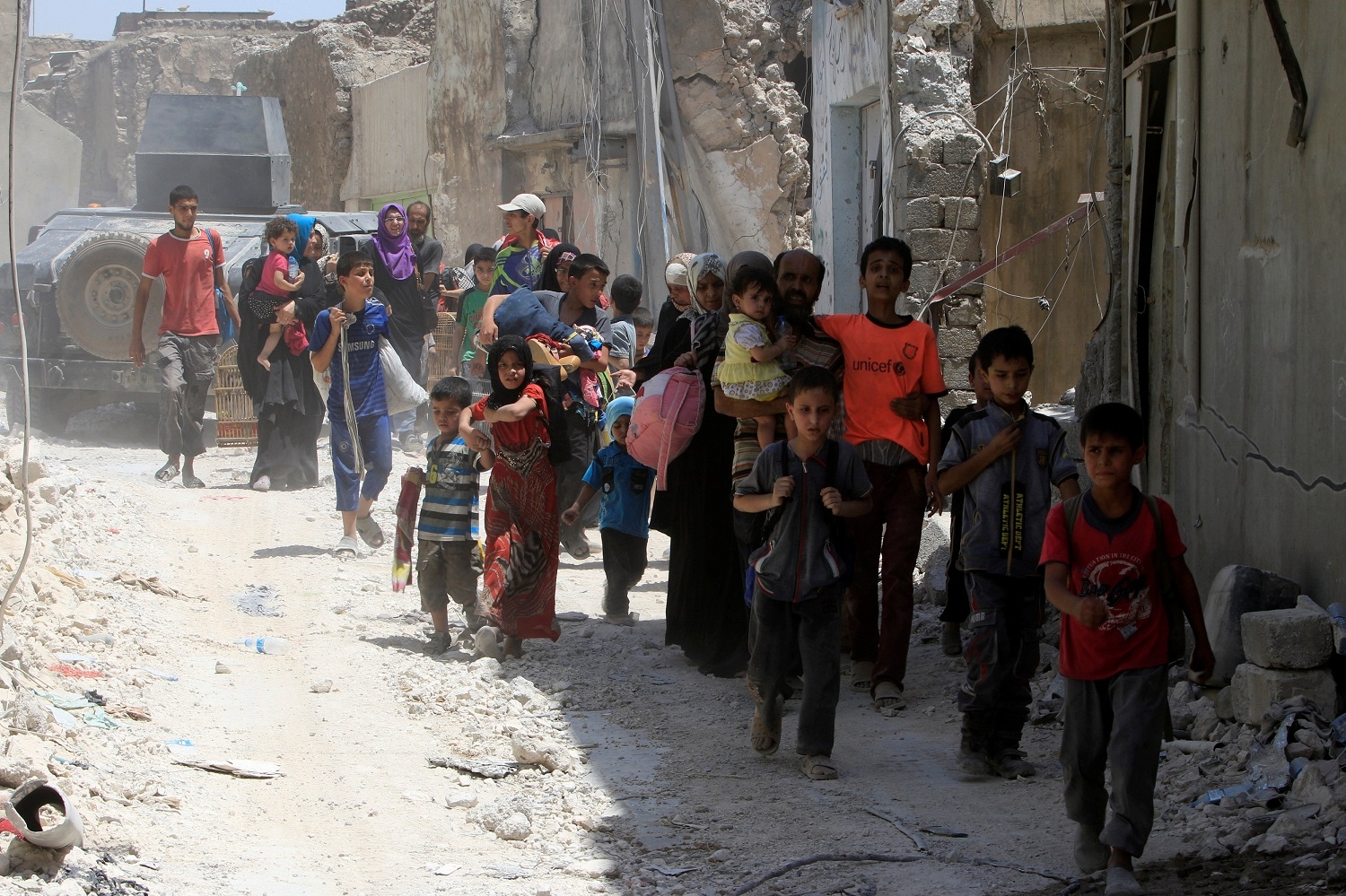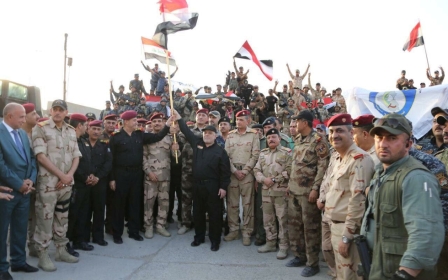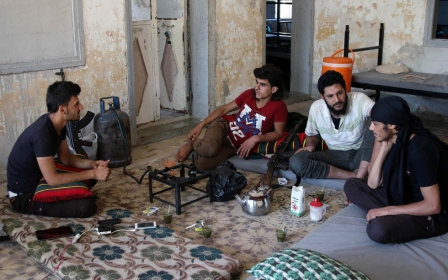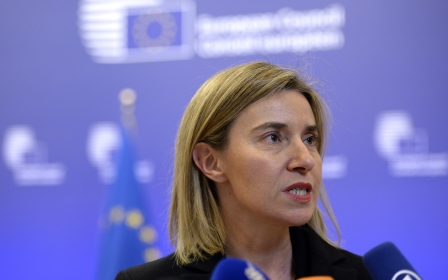US-led coalition to meet for post-IS brainstorm in Washington

NEW YORK, United States – Three years ago, the Islamic State (IS) group tore across Iraq as government forces fled in terror. That tide has long since turned, with Iraqi Prime Minister Haider al-Abadi declaring “victory” and an end to militant rule in Mosul on Sunday after nearly nine months of urban warfare.
In Raqqa, the group’s de facto capital in Syria, US-led forces have surrounded the militants and breached the Old City walls on 3 July. Russia says IS leader Abu Bakr al-Baghdadi may have been killed in an air strike, with his self-proclaimed caliphate evidently in tatters.
Against this backdrop, ministers from the 72-member anti-IS coalition will meet for three days in Washington on Tuesday for talks that a spokesman said would propel the armed group on an “irreversible and lasting path to defeat”.
But analysts and former government officials expressed concern on what kind of a strategy the US will pursue once IS is eradicated.
Derek Chollet, a former Pentagon official, said former US President Barack Obama laid the groundwork for military gains against IS, but his successor, Donald Trump, lacks a clear post-war strategy to share with his coalition allies from Europe, the Middle East and elsewhere.
“There was never a question that, over time, militarily, the US, working with partners, could deliver a considerable military blow to IS. But we all knew that what was going to matter was what comes next. And this is the moment we now find ourselves,” Chollet told Middle East Eye.
“This administration has basically followed very closely the anti-IS strategy it inherited. Now it’s in a situation where it doesn’t have a strategy to just fall back on, when it comes to the post-conflict situation facing us.”
We all knew that what was going to matter was what comes next. And this is the moment we now find ourselves
- Derek Chollet, former Pentagon official
Mosul boost
At the top of the agenda, ministers must hatch plans for post-IS Iraq. Militants have been all but kicked out of Mosul, but still control ground in Tel Afar, Hawija and western Anbar and are likely to revert to more conventional insurgency tactics such as suicide bombings.
The battle for Mosul – by far the largest city to fall under the militants’ control – has killed thousands of civilians and displaced nearly one million people. Much of the city’s cherished architecture, including the medieval Grand al-Nuri mosque, is in ruins.
The United Nations says it will cost more than $1bn to repair Mosul’s basic infrastructure. UN humanitarian coordinator Lise Grande said some 700,000 people are still displaced and urgently need shelter, food, water, medicine and toilets.
“The levels of trauma we are seeing are some of the highest anywhere,” Grande said.
For British Defence Secretary Michael Fallon, there is still work to do. IS “remains dug in west of the Euphrates and clearing operations in and around Mosul will be needed because of the threat from improvised explosive devices,” he said in a statement.
Kuwait has renewed a warning about the security threat posed by Arab militants who joined IS, but may now want to dodge "martyrdom," exit the collapsing caliphate and make a dash back to their home countries.
Before heading to the Washington confab, Kuwaiti envoy Nasser al-Subaih, an assistant foreign minister, told Kuwait News Agency of plans to “rehabilitate and integrate those fighters in their communities after facing fair trials”.
Meanwhile, Iraq’s security forces are in need of a boost.
According to a Pentagon source, the elite Counter Terrorism Service, which spearheaded the fight in Mosul, had suffered 40 percent losses. The US Department of Defense has requested $1.3bn in US budget funds for 2018 to continue supporting Iraqi forces.
Despite these efforts, Iraq still faces uncertainty and long-term stability will only be possible if the government contains ethnic and sectarian tensions that have dogged the country since Saddam Hussein was toppled in 2003.
Syria: A more complicated situation
The fight against IS is more complicated in Syria, where militants exploited the power vacuum of a civil war between pro-government and various rebel forces that has sucked in guns, soldiers and money from Russia, Iran, Turkey, the Gulf, the US and elsewhere.
Under the banner of the US-backed Syrian Democratic Forces (SDF), Kurdish and Arab militias are now fighting inside Raqqa’s historic Old City, where some 3-4,000 militants are waging night-time battles in areas they have booby-trapped with motion sensor-triggered mines.
The UN estimates that 50,000 to 100,000 people are trapped in Raqqa and warns of “massive civilian casualties” during its liberation. Witnesses said the militants have shot at those trying to escape, as people reportedly pay smugglers large sums to get them out.
The problem for Washington and its allies is that as US-backed fighters seize ground from IS around Raqqa and in eastern Syria, they increasingly encounter forces loyal to Syrian President Bashar al-Assad and his chief international backers, Russia and Iran.
This is not good news for the region or the Saudis
- Ross Harrison, Georgetown University
Trump is opposed to Assad, but his administration has yet to state it will seriously contest his staying in power, said Chollet. Likewise, the US and its Gulf allies are wary of letting Iran emerge from the war with a land corridor from Tehran to its Hezbollah militants in Lebanon.
Washington’s emerging post-IS strategy may have precipitated a deal between Trump and his Russian counterpart, Vladimir Putin, at the G20 summit in Hamburg, for a ceasefire and “de-escalation agreement” across southwest Syria that came into effect on Sunday.
Later that day, Trump tweeted: “Syrian ceasefire seems to be holding. Many lives can be saved.”
Russia, Turkey and Iran tried to finalise a deal on creating four de-escalation zones in Syria, but failed to reach an agreement at peace mediations in the Kazakh capital, Astana, on Monday.
A diplomatic rift between Gulf petro-monarchies also affects talks between coalition envoys. Saudi Arabia, Bahrain, Egypt and the United Arab Emirates imposed sanctions on Qatar last month, accusing Doha of cosying up to Iran and aiding terrorism, something it denies.
Ross Harrison, a Georgetown University scholar who writes for Foreign Policy magazine, warned that efforts against IS could fall by the wayside as regional heavyweights Iran and Saudi revert to a traditional view of “seeing the other as its number-one security threat”.
“Given the need for a concerted effort to ensure that IS does not regroup after the liberation of Mosul and Raqqa, and other like-minded groups don’t fill these spaces, this is not good news for the region or the Saudis,” Harrison told MEE.
“IS and other jihadist groups are an insurgency against the Arab order, their perpetuation does more harm to the Arab heartland than the likes of Iran and Turkey.”
New MEE newsletter: Jerusalem Dispatch
Sign up to get the latest insights and analysis on Israel-Palestine, alongside Turkey Unpacked and other MEE newsletters
Middle East Eye delivers independent and unrivalled coverage and analysis of the Middle East, North Africa and beyond. To learn more about republishing this content and the associated fees, please fill out this form. More about MEE can be found here.




